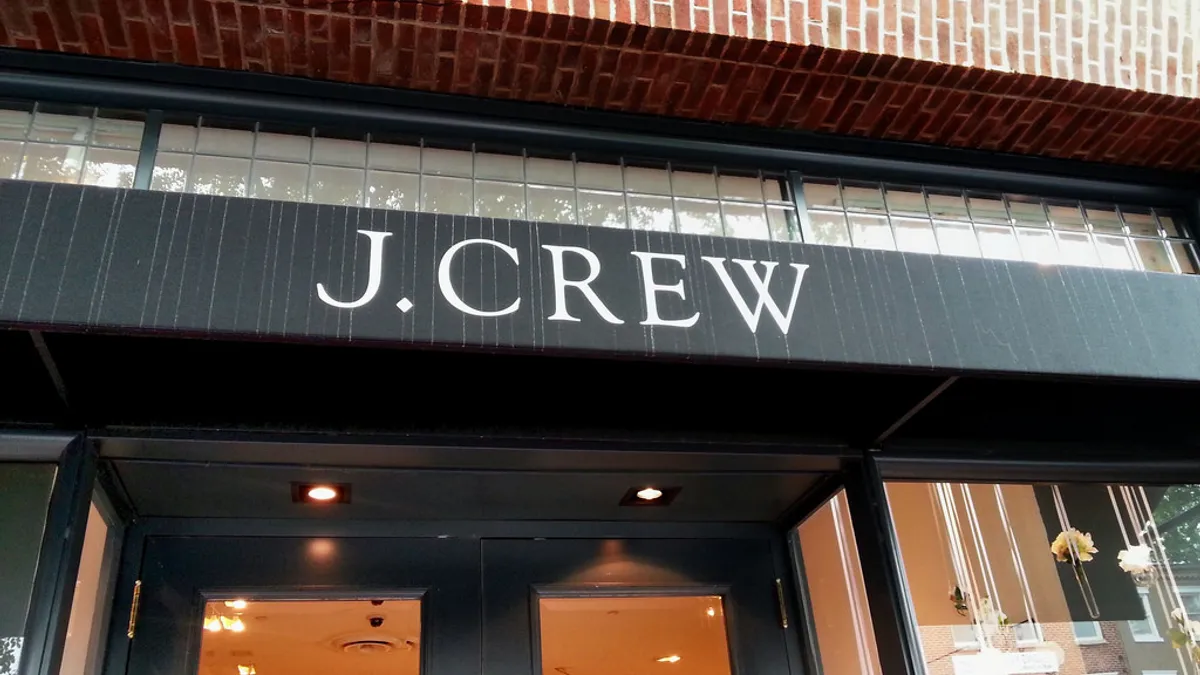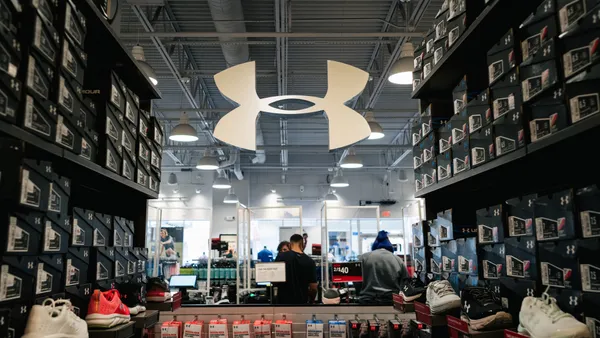Dive Brief:
-
The debt swap that J. Crew announced on Wednesday has been held up by a lawsuit filed on Thursday in New York State Supreme Court by two lenders claiming that the deal can’t go forward without unanimous consent of its lenders, Bloomberg reports.
-
Eaton Vance Corp. and Highland Capital Management are the holdouts in a plan to trade senior notes due in 2019 for an equity stake and bonds that mature in 2021. J. Crew said Wednesday that 88% of lenders consented to the plan. Requests for comment from Retail Dive to Eaton Vance and Highland Capital weren't immediately returned. A J. Crew spokesperson told Retail Dive that "the company believes the litigation filed yesterday is wholly without merit."
-
The sticking point is a proposal for the company's term-loan lenders to dismiss, with prejudice, litigation relating to the assignment of its intellectual property rights, which J. Crew late last year attempted to shield by transferring them to an unrestricted Cayman Islands subsidiary.
Dive Insight:
J. Crew's move to back up its restructuring with its brand equity demonstrates its value — the reason the company was so keen to protect that from its lenders, who have since cried foul in court, yesterday and in another lawsuit months ago. But, as Howard Davidowitz, chairman of New York City-based retail consulting and investment banking firm Davidowitz & Associates Inc., told Retail Dive, the retailer's challenged financial position is hampering a turnaround in other ways.
For one, worried suppliers are likely asking for stiffer terms, Davidowitz said. The company's $2 billion debt load has also distracted J. Crew from focusing resources on retail fundamentals. "For J. Crew, in my opinion, it’s over, because there is no way to deal with the debt," he said. "It’s impossible.”
“If this were a normal company, with cash in the bank, I 100% believe that three years from now J. Crew would be rolling," Davidowitz said. "But what supplier is going to deal with [the company] in a normal way."
Even if the debt swap plan eventually moves forward, Moody's Investors Service noted recently that delaying maturity will only go so far. "The debt exchange will be credit positive because it provides J.Crew with runway through 2021 to execute on its operational turnaround and lowers its debt load," Raya Sokolyanska, a senior analyst at Moody's, said in an email earlier this month. "However, it will still leave the company with unsustainable leverage and uncertain prospects for earnings growth. It will also result in the majority of free cash flow being used for licensing fees, which will pay for cash interest on the new notes."
When it first announced the debt plan, J. Crew also said first quarter revenues fell 6% to $532 million as same-store sales plunged 9%, worse than its 7% decline in the same period a year ago. Operating loss in the quarter was $153.3 million compared with operating income of $7.3 million in Q1 last year. Days before, the struggling apparel retailer had announced that CEO Mickey Drexler will step down next month.















